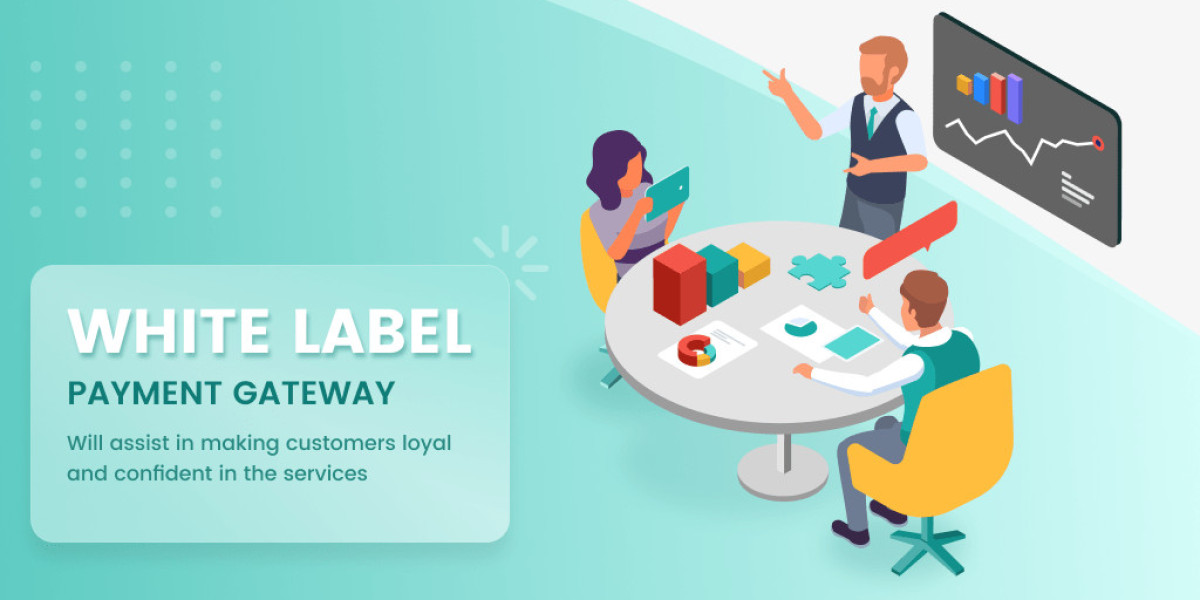In the dynamic world of financial technology, businesses are continuously seeking ways to enhance their offerings and streamline operations. One innovative solution that has gained traction is white label payment services. These services allow businesses to offer branded payment processing solutions without having to develop the technology from scratch. This article delves into what white label payment services are, how they work, and the benefits they can bring to your brand.

1. Understanding White Label Payment Services
White label payment services refer to payment processing solutions developed by one company that other businesses can rebrand and offer under their own name. Essentially, these services are built and maintained by a payment technology provider but presented as a proprietary solution of the business using them. This approach allows businesses to provide a seamless payment experience to their customers while leveraging the expertise and infrastructure of the service provider.
a) How White Label Payment Services Work
White label payment services operate by integrating payment processing technology into a business's existing systems. The payment gateway, which handles transaction authorization and processing, is customized with the business's branding, including logos, colors, and user interface elements. The end result is a payment solution that appears to be a unique offering of the business, while the underlying technology and support are provided by the white label service provider.
b) Key Components of White Label Payment Services
Payment Gateway: The core component that processes payments and communicates with financial institutions to authorize transactions.
Merchant Account: An account that allows businesses to accept payments and manage funds.
Fraud Prevention Tools: Security features that protect against fraudulent transactions and data breaches.
Reporting and Analytics: Tools that provide insights into transaction data, sales trends, and customer behavior.
2. Benefits of White Label Payment Services
Adopting white label payment services offers several advantages for businesses, ranging from branding opportunities to operational efficiencies. Here’s how white label payment services can benefit your brand:
a) Branding and Customization
One of the most significant advantages of white label payment services is the ability to brand the payment solution as your own. This means you can customize the payment gateway with your company's logo, colors, and design elements, creating a cohesive and branded experience for your customers. This level of personalization helps reinforce brand identity and can lead to increased customer loyalty.
b) Cost Savings
Developing a payment processing solution in-house can be prohibitively expensive and time-consuming. White label payment services allow you to avoid the high costs associated with technology development, maintenance, and compliance. Instead, you pay a fee to the service provider, which is often more cost-effective than building and managing a payment solution internally.
c) Speed to Market
In the fast-paced digital economy, speed is crucial. White label payment services enable businesses to quickly launch a branded payment solution without the lengthy development process. This rapid deployment allows you to start accepting payments almost immediately, which can be a significant advantage in competitive markets.
d) Access to Advanced Features
White label payment service providers often offer a range of advanced features, including multi-currency support, recurring billing, and mobile payment options. By leveraging these features, you can offer a comprehensive payment solution to your customers without the need for additional development. This can enhance the overall customer experience and differentiate your business from competitors.
e) Enhanced Security and Compliance
Payment processing involves handling sensitive customer data, making security and compliance critical. White label payment services come with built-in security features and adhere to industry standards such as PCI DSS (Payment Card Industry Data Security Standard). This helps ensure that your payment solution is secure and compliant with regulatory requirements, reducing the risk of data breaches and fraud.
f) Scalability
As your business grows, so do your payment processing needs. White label payment services are designed to scale with your business, handling increased transaction volumes and expanding payment methods as required. This scalability ensures that your payment solution can accommodate growth and evolving business requirements.
g) Focus on Core Business Activities
By outsourcing payment processing to a white label provider, you can focus on your core business activities rather than managing the complexities of payment technology. This allows you to allocate resources to areas that directly impact your business's growth and success, such as product development, marketing, and customer service.
3. Choosing the Right White Label Payment Service Provider
Selecting the right white label payment service provider is crucial to ensuring that you get the most out of the solution. Here are some factors to consider when making your choice:
a) Reputation and Experience
Choose a provider with a strong reputation and extensive experience in the payment processing industry. A reputable provider will have a track record of reliability and customer satisfaction, which is essential for a smooth and successful payment solution.
b) Security and Compliance
Ensure that the provider’s payment solution adheres to the highest security standards and regulatory requirements. Look for features such as encryption, fraud detection, and compliance with PCI DSS to protect your customers’ data and minimize risk.
c) Customization and Integration
Evaluate the level of customization and integration options offered by the provider. The payment solution should be easily customizable to reflect your brand and integrate seamlessly with your existing systems, such as e-commerce platforms and CRM systems.
d) Pricing Structure
Consider the pricing structure of the white label payment service, including transaction fees, setup costs, and ongoing maintenance fees. Choose a provider that offers transparent pricing with no hidden costs and aligns with your budget and business goals.
e) Customer Support
Reliable customer support is essential for addressing any issues or concerns that may arise. Look for a provider that offers 24/7 support through multiple channels, such as phone, email, and live chat, to ensure prompt resolution of any problems.
f) Feature Set
Assess the features offered by the white label payment service, including payment methods, reporting and analytics, fraud prevention, and customer support tools. Choose a provider that offers a comprehensive feature set that meets your business’s specific needs.
4. Case Studies: Successful Implementations of White Label Payment Services
To illustrate the benefits of white label payment services, consider the following case studies:
a) E-Commerce Retailer
An online retailer used a white label payment service to offer a branded payment experience to its customers. By integrating the payment gateway into its e-commerce platform, the retailer was able to enhance the customer experience, streamline payment processing, and quickly launch new payment methods. The result was increased customer satisfaction and higher conversion rates.
b) Subscription-Based Service
A subscription-based service provider adopted a white label payment solution to manage recurring billing and subscription management. The provider was able to offer a seamless payment experience, automate billing processes, and gain valuable insights through detailed reporting and analytics. This led to improved operational efficiency and better customer retention.
c) Mobile App Developer
A mobile app developer integrated a white label payment gateway into its app to enable in-app purchases and subscriptions. The payment solution was customized to match the app’s branding, and the developer benefited from the provider’s advanced security features and support for multiple payment methods. This integration contributed to a smoother user experience and increased revenue.
5. Conclusion
White Label Payment Services offer a strategic solution for businesses looking to provide branded payment processing without the complexities of technology development and maintenance. By leveraging these services, you can enhance your brand identity, save on costs, and benefit from advanced features and robust security. As you consider implementing a white label payment solution, focus on selecting a reputable provider that meets your business needs and aligns with your goals. With the right white label payment service, you can offer a seamless and secure payment experience that supports your business’s growth and success.







